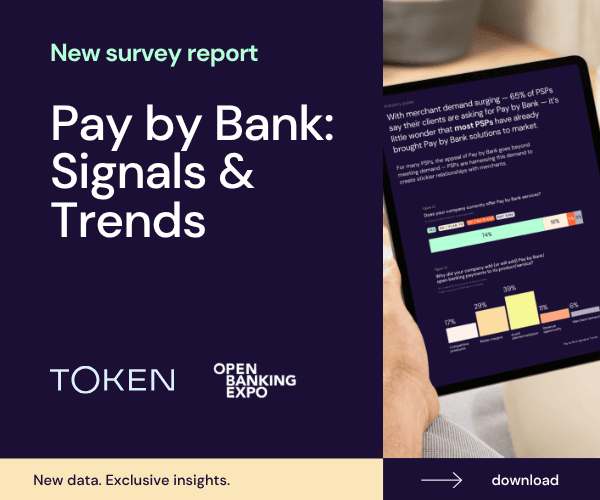
Opinion: Banks call for cooperation if Open Banking is to succeed in Canada
OpenBankingExpo | News
27 Sep 2019
Canadian financial institutions need to take a proactive role in meeting the future financial needs of consumers and small businesses with new technological solutions. That was the overwhelming message during a panel discussion on the next revolution of banking at the Open Banking Expo in collaboration with Equifax Canada in Toronto on 18 September.
Andrew Moor, president and chief executive of Equitable Bank, opened the discussion by saying Open Banking is critical for the entire financial sector in terms of fulfilling the needs of consumers from all income backgrounds, as well as small businesses.
“Open Banking is really important in Canada in terms of providing a social licence for the whole industry. We need to fulfil the needs of the population of Canada, whether it’s people that are struggling financially, but also the fabled middle class,” Mr Moor said.
He added: “I would include as amongst our greatest service, the needs of small business. There’s an asymmetry between the data that the small business has and how we serve them. Open Banking can go a long way to helping small businesses be more vibrant, most of financial firms get better access to capital, and through that create jobs and employment prosperity in the community.”
Reflecting on how consumers benefit from new technology, Carolyn Burke, head of enterprise payments at Royal Bank of Canada, said it is important to remember that a version of Open Banking is not necessarily a new concept and instead has existed in Canada for two decades.
“The ingredients where businesses and consumers who wanted to see a full picture of their financials, using bank credentials to take information in,” she said. “Now, the security of that channel has been enhanced over time, but the ability to bring partners and data together to improve lives has been around in North America for over 20 years.”
The discussion quickly turned to the challenges that banks and fintechs face in implementing Open Banking technology, and how they can be overcome.
For Eyal Sivan, head of strategic platforms at CIBC, a major challenge for the banking sector in implementing Open Banking is finding a balance between what is being driven by regulators and what is being driven by market demand.
“One thing you hear about all the time is what is regulatory-driven versus market-driven,” he said. “Some people feel the regulator should be incredibly prescriptive. Some people feel that regulation should not be part of the solution at all.”
Similarly, Michael Legare, vice president of digital transformation at National Bank of Canada, said consumer awareness continues to be troublesome for the sector, and this amplifies the challenges that institutions face.
“I think there’s a real opportunity here in Canada to think about how we approach this properly so that we treat Open Banking as a springboard to help our Canadian institutions,” he said. “If you look at it from a fintech perspective, even if they were to partner with every large bank in Canada, that’s still somewhat of a limited market when you compare it to other fintechs around the world who are opening up to a broader range of institutions. How do we support an ecosystem here in Canada so that we compete on a global stage?”
Another point of discussion was the fact that Canada’s payments system still has a long way to go in terms of becoming modernised, which some observers said is holding back innovation.
Mr Moor said Canadians should be embarrassed about the country’s payments system and the fact it still takes days, rather than minutes, to move money from one bank to another. “That’s a public embarrassment,” he said. “We are working hard on the real-time rail, but I feel like I’ve been waiting forever for it and it’s still a couple of years away.”
However, Ms Burke defended Canada’s payments system, saying that while the real-time rail doesn’t exist just yet, the country has had near-real-time payments for 20 years, which pre-dates most other countries. “
Overall, the panel broadly agreed that the best way to move the industry forward is for banks, fintechs and other interested parties to cooperate and collaborate with each other, and to move more quickly to develop standards that help customers.
“The customer experience has to be the central part of what we do as part of Open Banking,” Mayank Mishra, global head of digital channels for Citibank. “It’s important because customers will now have a choice at each and every stage of their life cycle to pick the right partner for them, rather than being stuck with a particular bank for the entire value chain.”
To that end, he said API standardisation needs to become faster and more agile so that financial institutions can ensure they are competitive and can provide services their customers want.



